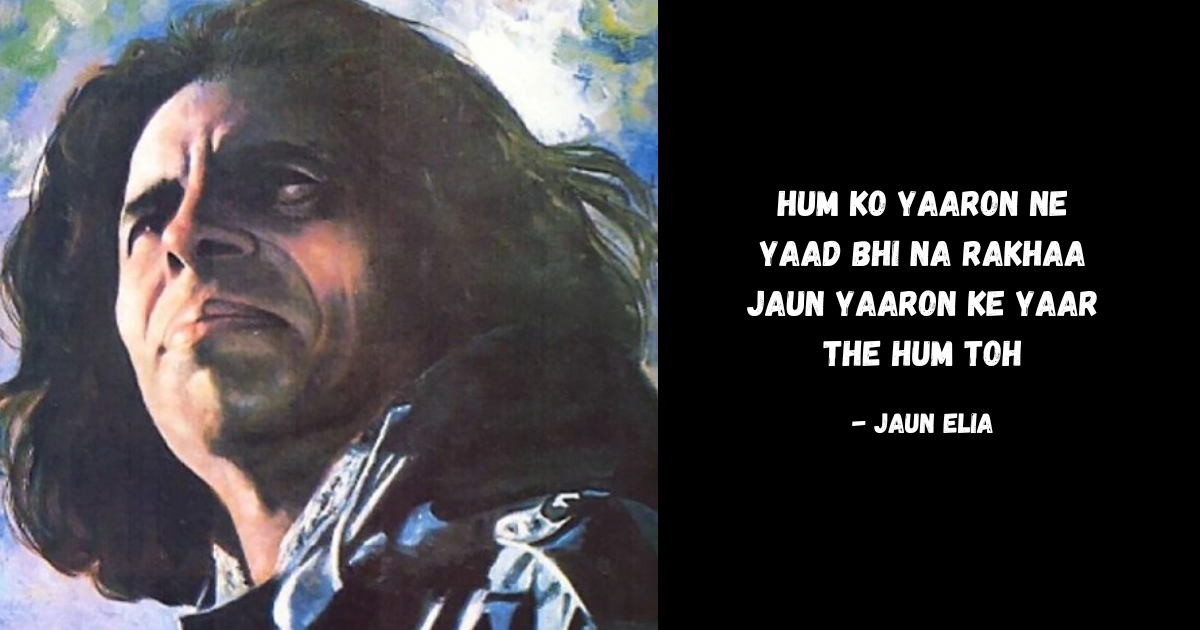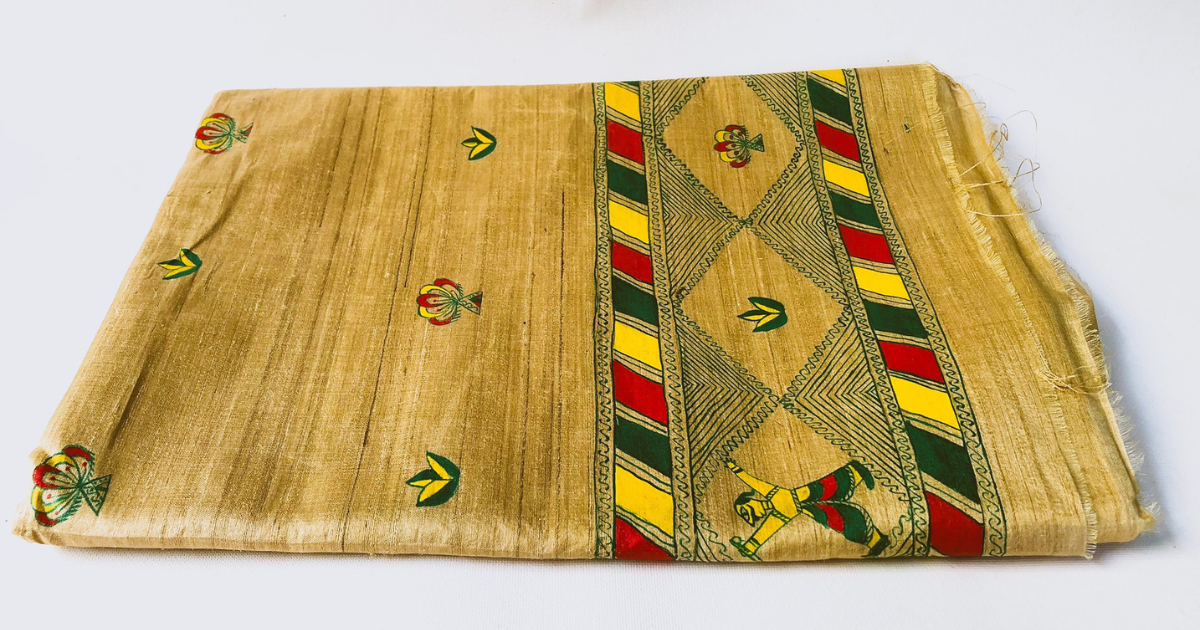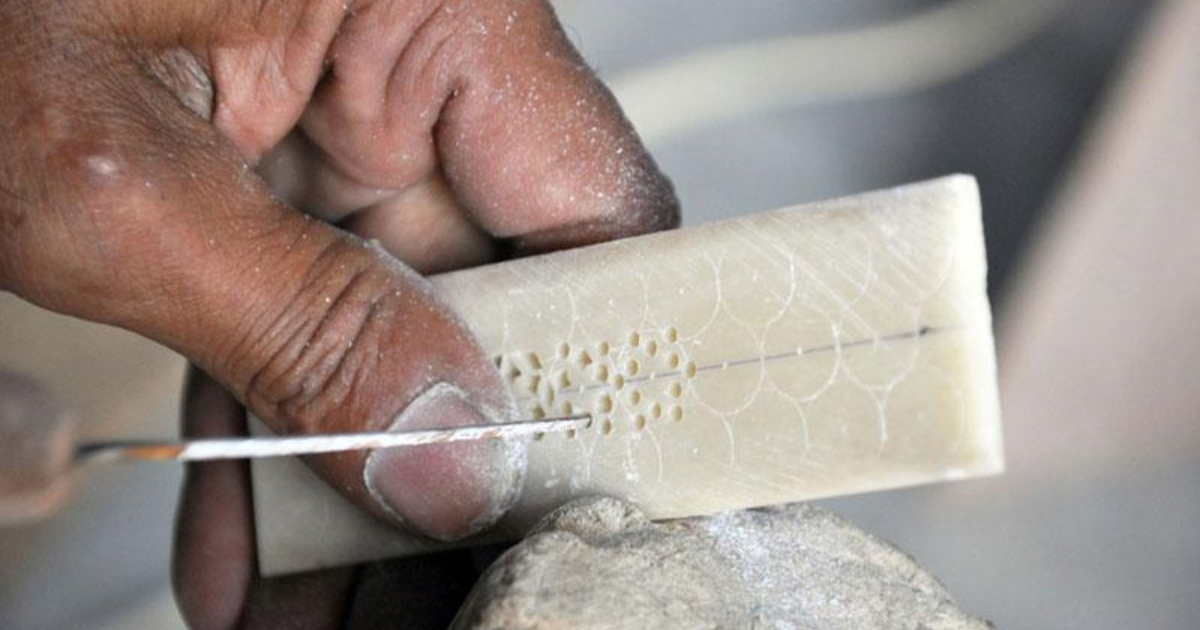Jaun Elia, born on December 14, 1931, in Amroha, British India, was a poet whose words danced with the essence of melancholy and intellect. His journey from a young boy in a small town to a revered literary figure in the subcontinent is as intriguing as the verses he penned. Jaun’s life was a tapestry woven with the threads of brilliance, struggle, love, and rebellion, making him a legend in Urdu poetry.
Early Life and Background
Jaun Elia was born into an intellectually vibrant family. His father, Allama Shafiq Hasan Elia, was a respected scholar and poet, and his brothers, Rais Amrohvi and Syed Muhammad Taqi, were also prominent figures in literature and journalism. Growing up in such an environment, Jaun was naturally inclined towards literature and philosophy. His early education in Arabic, Persian, and Urdu laid a strong foundation for his literary pursuits.
Yun jo takta hai aasman ko tu
Koi rehta hai aasman mein kya
Ye mujhe chain kyun nahin padta
Ek hi shakhs tha jahaan mein kya
Jaun Elia
The Migration and Personal Struggles
The partition of India in 1947 brought about a significant change in Jaun’s life. His family migrated to Pakistan, a move that deeply affected him. The transition was not just geographical but emotional and cultural, leaving an indelible mark on his psyche. Jaun often expressed his sense of loss and dislocation in his poetry, capturing the pain of uprooting and the longing for his homeland.
Jaun’s personal life was marked by turbulence. He married Zahida Hina, a fellow writer, but their relationship was fraught with difficulties, eventually leading to a separation. The emotional turmoil of his personal life seeped into his poetry, adding layers of depth and sorrow to his work. Despite these struggles, Jaun continued to write, drawing inspiration from his own experiences and the world around him.
Bada ehsaan hum farma rahe hain
Ki unke khat unhe lauta rahe hain
Kissi surat unhe nafrat ho hum se
Hum apne aeb khud ginwa rahe hain
Jaun Elia
Literary Career and Highs
Jaun Elia’s poetry is celebrated for its unique style, blending classical and modern elements. His work is characterised by a profound sense of existential angst, intellectual rigour, and a rebellious spirit. Jaun’s mastery over the language and his ability to convey complex emotions with simplicity set him apart from his contemporaries.
His first collection of poetry Shayad was published in 1990, when he was nearly 60 years old. Despite the late publication, the book was a phenomenal success, resonating with readers and critics alike. Shayad was followed by other collections, including Yaani, Gumaan, and Lekin, each further establishing Jaun’s reputation as a literary genius.
Jaun’s poetry often delved into themes of love, loss, and the search for meaning. His verses were a mirror to his soul, reflecting his innermost thoughts and feelings. His ability to capture the intricacies of human emotions and his philosophical musings endeared him to a wide audience, making him one of the most beloved poets of his time.
Ho raha hu mai kiss tarah barbaad
Dekhne wale haath malte hain
Kya takalluf karen ye kehne mein
Jo bhi khush hai hum us se jalte hain
Jaun Elia
Recognitions and Legacy
Despite his reclusive nature and the challenges he faced, Jaun Elia received considerable recognition for his contributions to Urdu literature. He was not just a poet but also a scholar, philosopher, and translator, bringing many classical texts into Urdu. His work transcended boundaries, resonating with people across generations and cultures.
Jaun’s legacy is not just in his published works but also in the impact he had on his readers and the literary community. His poetry continues to inspire and move people, offering solace and provoking thought. Jaun Elia’s life and work are a testament to the enduring power of words and the profound impact a poet can have on society.
Saarey rishte tabaah kar aayaa
Dil-e-barbaad apne ghar aaya
Mai raha umar bhar judaa khud se
Yaad main khud ko umar bhar aaya
Jaun Elia
Jaun Elia: The Enigma Lives On
Jaun Elia passed away on November 8, 2002, but his spirit lives on through his poetry. He remains an enigmatic figure, a poet whose life was as complex and captivating as his verses. Jaun’s journey from the narrow lanes of Amroha to the literary circles of Karachi is a story of passion, struggle, and brilliance.
In the world of Urdu poetry, Jaun Elia stands as a beacon of intellectual and emotional depth. His words continue to echo in the hearts of those who seek solace in poetry, offering a glimpse into the mind of a genius who dared to bare his soul to the world.




